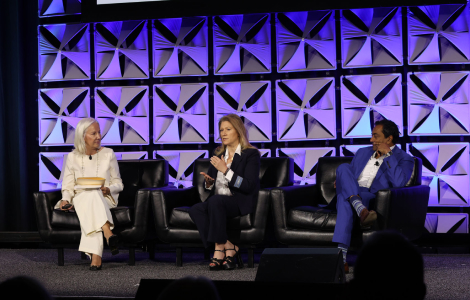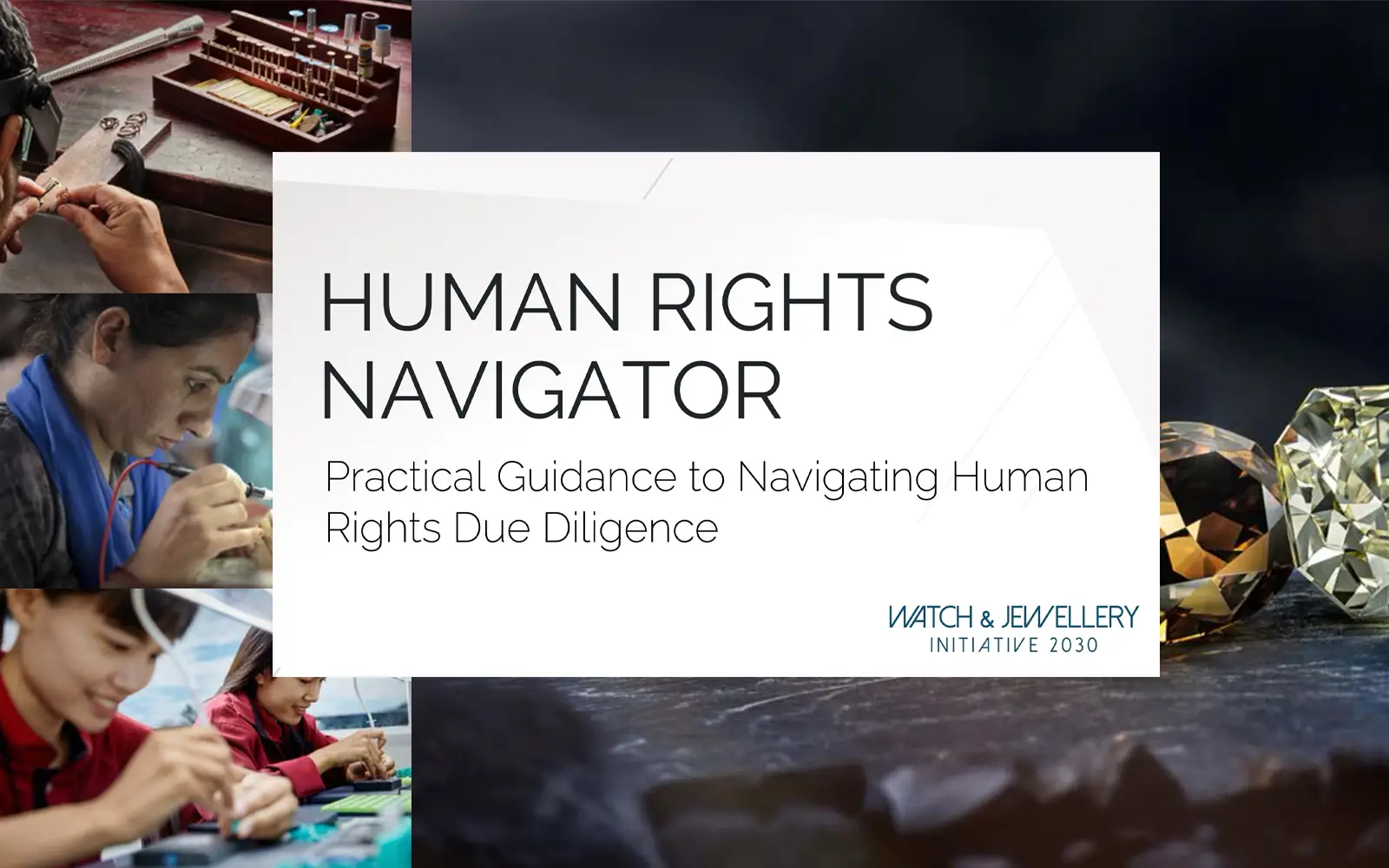Joint Interview on the Human Rights Navigator with Elisa Niemtzow, Vice President, BSR, and, Dr. Nawal Ait-Hocine, CEO, A Positive Impact


Vice President, BSR
CEO, A Positive Impact Sarl
Q: What is the Human Rights Navigator?
The Human Rights Navigator, is an open-source toolkit that was designed to provide practical guidance, tools, and insights related to WJI 2030’s strategic objective to respect and promote human rights in our members’ operations and value chains. The Navigator is tailored to companies in the watch & jewelry industry and explains in detail how human rights due diligence (HRDD) should be carried out in this industry. It also explores salient human rights issues, i.e., potential and actual human rights impacts that are a priority for the industry. Moreover, the Navigator aims to build a company’s capacity to conduct human rights due diligence, and to assess, prevent, and mitigate actual and potential human rights impacts in their operations and value chain, providing resources for all maturity levels.
When we developed the Navigator, it was quite important to us to avoid duplication because lots of detailed resources and guidance documents on business and human rights exist. Therefore, the Navigator builds upon existing resources, including the European Union guide to human rights for small and medium-sized enterprises, and aligns with the OECD Due Diligence Guidance for Responsible Business Conduct, the UN Guiding Principles on Business and Human Rights, and human rights due diligence requirements outlined in the draft the European Commission’s Corporate Sustainability Due Diligence Directive (CSDDD).
Q: Why do we need a Navigator for our industry now?
The regulatory landscape and stakeholder expectations are rapidly evolving. In the EU, the trend towards legislating human rights is making human rights a business imperative. For example, the Corporate Sustainability Due Diligence Directive (CSDDD), which will require companies operating in the EU to report on human rights and environmental due diligence efforts from 2026-2028 onwards, is expected to drive an increase in human rights disclosure and corporate transparency. At the same time, the rise in human rights related litigation means that companies are becoming increasingly accountable for ensuring – and conducting due diligence to ensure – that human rights are respected in their own operations and value chains, and that they are accurate and forthcoming in reporting on their human rights impacts.
At the same time, we know that our industry is making progress on respecting human rights and conducting HRDD. For example, over 80% of WJI2030 members have begun to conduct HRDD. Yet, many of them face challenges when it comes to acting upon and integrating the findings of HRDD into corporate policies or management systems, or engaging meaningfully with affected stakeholders. Therefore, the Navigator is a response to the external environment but also to the internal and expressed needs of the WJI2030 membership to ensure that our industry respects and promotes human rights, in line with our overarching goal on Pillar 3, which is to foster inclusiveness in the industry.
Q: What topics does the Navigator cover?
The Navigator covers several topics related to conducting HRDD in watch & jewelry value chains. First, it provides an overview of industry human rights salient impacts and the importance of addressing them. It also summarizes the Implications of a changing regulatory landscape for members related to developing strong and future-fit human rights programs. In addition, the Navigator outlines best practices related to carrying out HRDD in watch & jewellery value chains, including access to tools which can be adapted and re-used by companies. The section also includes case studies from WJI2030 member companies such as Kering, Monica Vinader, Pandora, and Rosy Blue. Finally, the Navigator provides answers to most common questions and challenges and includes additional useful resources to progress with the integration of human rights best practices in company activities.
The Human Rights Navigator does not attempt to address all human rights related topics, but is a living document that will be updated and complemented over time.
It is important to mention that the Navigator can benefit companies in the watch & jewellery industry regardless of the maturity of their human rights programs and practices. The Navigator includes guidance for beginners – companies that are just starting on their human rights journey – and intermediate or advance members – those that already have robust HRDD practices in place but would like specific guidance on how to take their programs to the next level to ensure respect for human rights in their operations and value chains.
Q: What are the key objectives of the Navigator and how do companies benefit from using it?
The Navigator aligns with several of WJI’s objectives. First, it creates a common understanding of the evolving regulatory landscape and stakeholder expectations when it comes to HRDD. Second, the Navigator is a crucial resource to help build WJI2030 member capacity to conduct HRDD to assess, prevent, and mitigate actual and potential human rights impacts in their operations and value chain, regardless of the maturity of their human rights programs. As a result, the Navigator helps businesses ensure respect for human rights in line with internationally recognized human rights standards such as the UN Guiding Principles on Business and Human Rights or the OECD Guidelines and contributes to the resilience and wellbeing of rightsholders in the watch & jewelry industry.
Q: How does the Navigator align with upcoming mandatory human rights legislation?
The WJI Navigator is a practical tool providing business with guidance in undertaking human rights due diligence, as mandated by due diligence core obligations of existing and upcoming mandatory human rights legislation. It follows the UNGPs and OECD best practice and standards, which policymakers such as the EU Commission note as the northern star for companies in adopting a human-rights based due diligence approach. In fact, mandatory due diligence regulations, both in force and anticipated, make explicit references to such standards as guidance to follow to respond to the laws. However, it is critical to note that the Navigator does not constitute and cannot be relied upon as legal advice of any sort and does not represent an exhaustive review of legal or regulatory compliance. Finally, it also primarily focuses on human rights due diligence in line with the WJI2030 Pillar 3, and does not include guidance on environmental due diligence, which will be required under the CSDDD. Future iterations of the toolkit might cover an additional component on environmental risk-based due diligence in line with OECD guidance.
In the meantime, we welcome feedback, comments and questions on the Navigator and its content from WJI members and other industry stakeholders, as we continue to accelerate progress on this topic.


